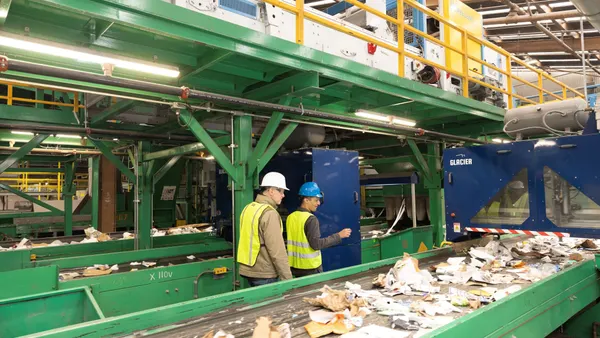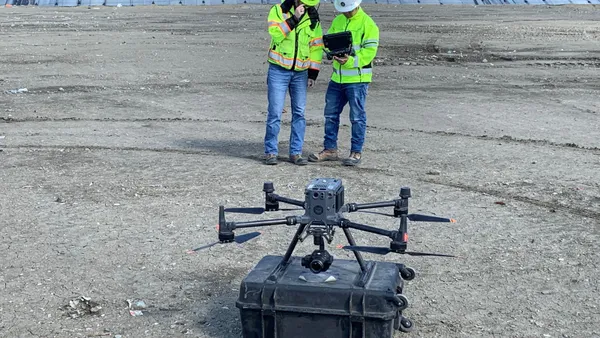Dive Brief:
- Wheelabrator's application to expand an ash monofill in Connecticut is currently stalled after the Putnam Inland Wetland Commission voted 2-1 against it last week, the Norwich Bulletin reported. While critics called the outcome a victory for wetland protection, the company intends to reapply.
- The expansion would add 17 million cubic yards of airspace, extending the site's lifespan by an estimated 25 to 30 years. Wheelabrator plans to offset effects on seven acres of nearby wetlands by either creating new wetlands elsewhere or contributing to a land conservation fund.
- Don Musial, general manager for Wheelabrator Putnam, told Waste Dive the company will "prepare and submit more detailed plans for review" once the Connecticut Department of Energy and Environmental Protection (DEEP) provides "additional direction." According to Musial, the monofill "presently has about four years of permitted site life remaining."
Dive Insight:
The vote marks the latest example of community pushback for Wheelabrator around its incinerators or proposed landfill projects in 2019.
Earlier this year, Baltimore passed a Clean Air Act law that a subsequent Wheelabrator lawsuit called an "illegal effort" designed to effectively shut down one of its facilities. In May, following local opposition and environmental concerns, Wheelabrator also abandoned plans for a new ash monofill and recycling center in Catskill, New York. A letter from President and CEO Robert Boucher said "we stand by the conclusions of our technical evaluation," but did not give a specific reason for the decision.
Still, Wheelabrator's new owner Macquarie Infrastructure Partners has said it sees lots of future potential in the Northeast and there have been other successful developments. In August, a Massachusetts judge allowed Wheelabrator to expand capacity by reducing the slope gradient at an ash landfill adjacent to the company's Saugus incinerator. Both the Conservation Law Foundation (CLF) and Saugus Board of Health disputed the expansion, but the state's Department of Environmental Protection (MassDEP) determined the project did not pose a safety hazard or violate the law.
CLF is also skeptical of Wheelabrator's plans in Putnam. Attorney Kevin Budris told Waste Dive this conflict offers Connecticut a chance to move away from waste incineration, which he called "cost inefficient" and a burden for taxpayers.
Like Massachusetts, Connecticut is facing similar problems around disposal capacity. Connecticut is entirely reliant on incinerators, which burn more than 2 million tons of waste annually, and has limited options for ash disposal beyond the Putnam site. A local official with knowledge of area infrastructure told Waste Dive that "capacity in New England has shrunk to next to nothing" for ash burial, and that the only likely alternative would be exporting to Virginia or elsewhere at higher costs.
DEEP told Waste Dive that if the Putnam site were to close, the nearest viable facility is in Shrewsbury, Massachusetts. However, the department clarified it is unclear if that facility has the capacity to absorb the waste currently going to Putnam. According to a recent MassDEP report, the Shrewsbury site is expected to close in 2028.
Wheelabrator is hoping to avoid that scenario as the Putnam monofill expansion has already been in the works for around a decade. "The project has been approved by the local Board of Finance, Planning Commission, and Board of Selectmen, as well as by a public vote at an open Town Meeting," said Musial. He explained that applications submitted to DEEP and the Army Corps of Engineers have been under agency review since last February.
Putnam would receive around $100 million in revenue if the expansion goes forward. Opponents argue that amount won't offset the potential safety issues posed by a potential ash leachate leak or general exposure to ash dust.









